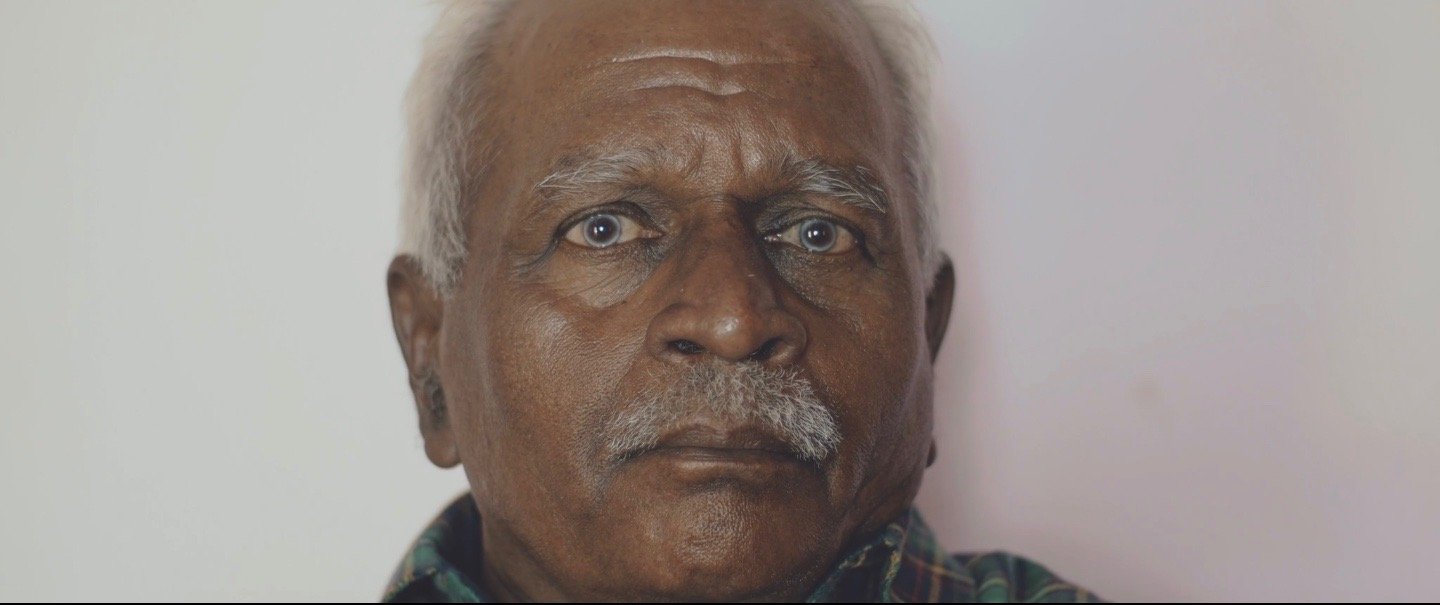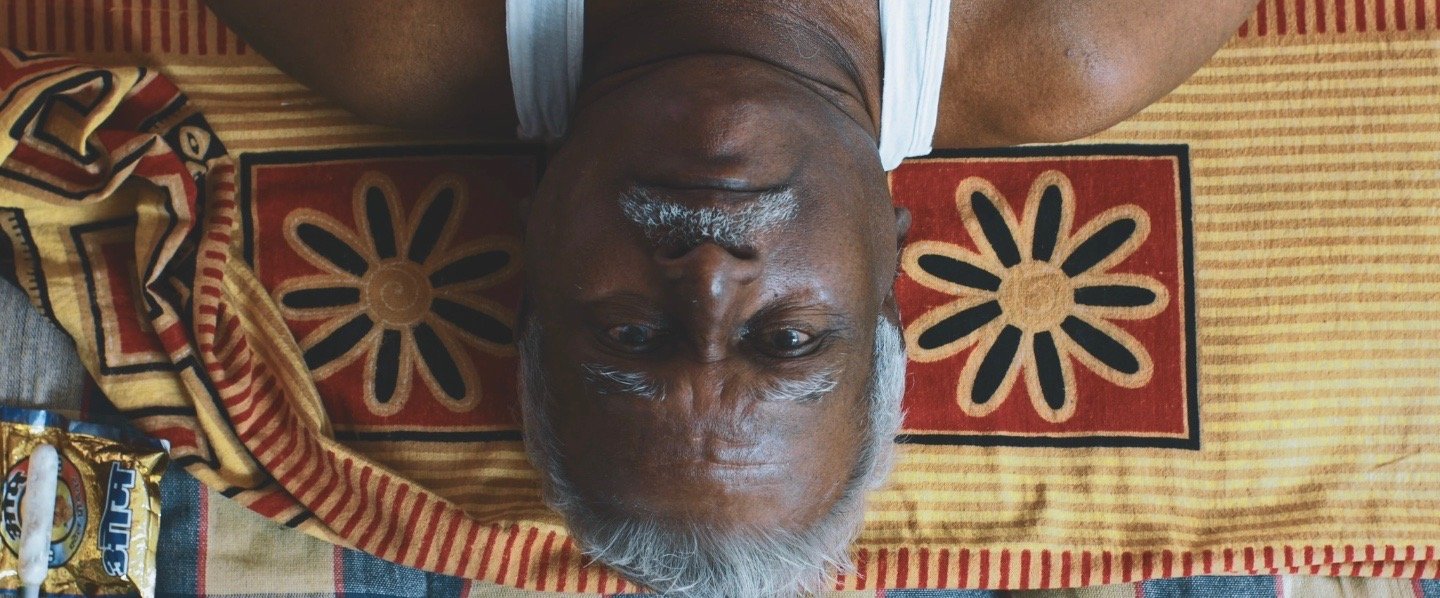“Man has evolved with modernization”. This statement has passed the litmus test of empirical evidence and the genius of scientists over the years. It has become, in inadvertent fashion, an axiom of life. The universal urge for realizing this conceited, yet necessary ambition, has resulted in man eloping with technology. It has become an integral and unassailable part of our lives, along with the chaos and disruption that takes shape as a byproduct. Namdev Bhau contemplates this newfound scrap of human life through its virtuous and rather ordinary titular protagonist, a 65-year old chauffeur, who embarks on a quest to find silence in the mountains of Ladakh.
The gorgeously shot film is the second in Ukranian filmmaker Ms. Dar Gai’s young filmography. The talented director debuted with the hugely impressive ‘Teen Aur Aadha’, an exquisite period-like drama set in a house that ages with its distinct occupants and their dreams, problems, and insecurities. With Namdev Bhau, Gai explores Namdev’s defiance of the modern lifestyle, deeply embedded in the pretext of contemporization, with Ladakh’s magical landscape as the backdrop. The film does not endorse a social message, but rather feels like an imitation of the personal experiences of the filmmaker.
Namdev’s troubles with the modern-world are universal in nature. Finding solace and comfort in the fast-moving world has become more and more improbable for the common man, something which Namdev desperately seeks to find. Namdev’s motivations to seek silence finds its roots in his routine. He wakes up to the trauma of his dancing, inebriated uncle, the combination of the nearby railway station and temple, and his garrulous wife. His first course of action is to quell the ensuing noises with earplugs and then carry on. When driving, he is meted with his employer, a seemingly busy and affluent lawyer always on the phone.

The steely resolve of Namdev, as he approaches the twilight of his domestic existence in Mumbai, is brought out in stellar fashion by Ms. Gai and cinematographer Aditya Verma. Namdev often finds no interest in the affairs of the others around him; only the day he leaves holds his attention. The structural significance of the way the early parts of the film are shot is found in the manner in which Namdev emerges as an unperturbed vessel of calmness in the middle of the scenes, and the chaotic, pointless auxiliaries, whom he pays no attention to are invariably sidelined. His rebellion is passive and patient, competent enough to withstand any adversitieson his way to silence and peace.
Recommended – 20 Criminally Underrated Films of 2018
After assuaging his wife’s fears of abandonment and reassuring her with a bag of his life-savings, Namdev sets off for his dreamland. He meets a younger companion, Aaliq, whose enthusiasm and shenanigans often make Namdev irritable and prove to be an impediment in his ultimate ambition: silence. The narrative brings out a stark contrast between the two characters and their respective perspectives about life with this union. Namdev shows no excitement on the trip, even prompting locals to call him a resident when they see him unexcitedly look at the mountains, while for Aaliq, the trek is a game, where he plays a ‘secret agent’ and his missionis to reach the ‘Red Castle’. Aaliq’s character also has an aching longing, that is veiled by the predilections of his emotional maturity, to find a friend he feels comfortable around. This philosophical tread, therefore, becomes important for both the characters and also affords the narrative some light-hearted moments and also gives its lonely characters the bliss of companionship. As they head towards their respective destinations, they bond and friendship blossoms, making the inevitable parting a heavily emotional moment. The simplicity that defines Namdev becomes a compelling force in his odyssey to experience physical silence.
The film expresses a continuity in its opening and closing scenes. Many people have wondered the importance of the door sandwiched between two walls of rock, bearing the strong winds that blow across it on the mountaintop. The door, as I see it, is a representation of the elusive goal that Namdev sets to achieve at the start of the movie, the quest for silence, which he realizes when the permanent frown that hugged his forehead vanishes to be replaced by a carefree, beaming smile. When he does reach the Silent Valley, he is met with disappointment: even one of the most silent places in the world has been corrupted by human intervention and has been reduced to a tourist spot. It is as if there’s no piece 0f land left on earth where the human gaze hasn’t probed. Despite this, we see him go through the door in the last shot of the film.
What is really beautiful here is the ambiguity of his action; whether he is using the door to enter or exit a world he wants to be a part of. This conceptualization of what Namdev seeks through the use of a simple but significant tool like a door instantly elevates the thematic exposition of the film. The metaphorical equivalent of doors in common parlance is an opportunity, or rather, a promise of a fresh start. And the ending shot, that is preceded by a happy, cheerful Namdev dancing without trivializing noise, delivers Namdev to a state where he is satisfied.

The character of Namdev is portrayed by a real-life driver with the same name. His journey from script to screen, thus, feels organic and natural, with the performance seeming like an extension of his actual personality. His first dialogue comes late in the second half, with the first word being ‘chicken’, almost suggesting that he doesn’t even want his own speech to disrupt the precious silence he seeks. Although it is highly improbable that he will ever take to the screen again, Namdev delivers a resounding performance that doesn’t feel like one at all.
Namdev Bhau is a seminal meditation on the adversarial city life and the isolated existence the practitioners are led into. Its representation of disharmony between mind and body finds an able medium in a spirited Namdev Bhau, bringing out an expedient truth we must adhere to: coming to terms with your internal conflicts is an exigency of a happy life.


